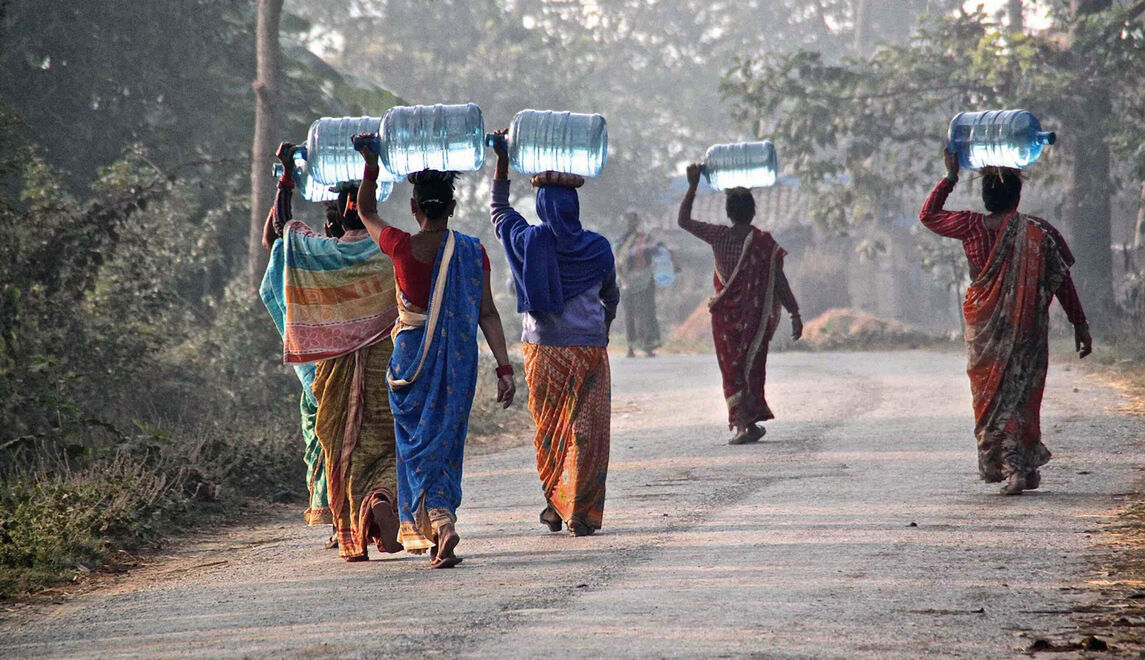
Our NEXUS project in Nepal has to be considered a failure. A legislative change by the (communist) government makes it impossible for us to continue investing in the agricultural sector. The local NEXUS Farmers Company continues to exist. However, WECONNEX can no longer actively support the project.
At the beginning of this year, we founded the NEXUS Farmers Company in Nepal (NEFACO) with the intention to extend our original project focus to include small-scale farming. The road to foundation was a tough one and took a while. A few short months later a new law got in our way, making the project continuation impossible. Our projects bear risks. Transparency towards investors is a must; and we see it as an obligation to transparently communicate our failures too.
Point of departure
WECONNEX successfully set up and managed 12 NEXUS Centers and five school projects in the Chitwan region in Nepal. The project focus was to provide safe drinking water for the rural communities and hygiene education mainly at the schools. Furthermore, at certain Centers local entrepreneurs could rent rooms to serve as shop locations.
With time, we had to admit that our impact was limited. We generated some local jobs and served a few hundred families with drinking water. On the financial side we were able to pay the local costs but did not reach enough turnover to pay back the investments. In 2018 we started to think about an alternative use of the substantial investment we had put in the NEXUS Centers to extend their function as infrastructure hubs in remote regions.
The turning point
We thus initiated next steps to implement the holistic NEXUS Concept in Nepal, with the aim to become an active player in Nepal’s agricultural sector to promote the sustainable production and market access for a wide range of products through our NEXUS Centers. We decided to extend our activities to the agricultural sector with the intention to increase our impact on social, environmental and economic levels.
Promising potential
The current conditions of small-holder farmers in the Chitwan region provided a wide range of opportunities. Farming is their main source of income, but the farmers often working inefficiently, without technical support, challenged with bad access to markets and very small profits. The Centers were to be converted to a point of contact for local farmers, where they receive trainings, access to good quality seeds and fertilizers and support to be more efficient in their field operations.
But then: A rocky path…
To be able to buy the harvested products from the farmers at a fair price, potentially process them to increase their value and sell them at a local or national market, we were required to set up a local company and apply for two licenses enabling agricultural production and the processing of agricultural products. It took us 11 months to receive these licenses, further three months were spent getting access to a bank account for the newly formed company NEFACO.
…leading to a bitter end.
Just when we thought we were at the end of this weary process and could kick-off with our farming activities we learned that the Government of Nepal is planning to implement a new law for Foreign Direct Investments (FDI). The law substantially impeded investments into the country, especially in the field of agriculture, and meant for us that we could simply no longer continue with our planned activities unless we were willing to invest a minimum of USD 700’000 per location and license.
Having no perspective to be able to scale our project in Nepal it meant the end of our efforts. The law was implemented within less than three months and we only learned about it because we were pressuring the Swiss Embassy to support us with the founding of NEFACO. The mother company WECONNEX was forced to write off more than CHF 800’000 CHF, which brought WECONNEX into a difficult situation. Only with the support of our project investors and shareholders it was possible to avoid the collapse of the company and continue with our work.
Sometimes you win, sometimes you learn
In this case we learned. We went through a difficult and challenging process. We realized that at times withdrawing from a project might be a necessary step even though it is not what we want to stand for. But if so many obstacles are put into your path rethinking the course is required. We learned that we need to structure our projects more resiliently and effectively. And we saw what it means to have ‘skin in the game’ in such complex projects in developing countries. We emerged stronger from the experience and are able to apply the learnings for our projects in new locations.
In Nepal, we are continuing our local operations on a small scale. We see it as our obligation to give the local team a chance to sustain NEFACO and continue the water operations as long as possible.
Source: nexus ch




0 Comment